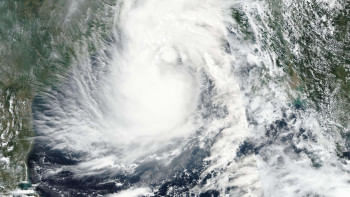7 troops, 23 militants killed in Pak clash
At least seven Pakistani troops and 23 Islamic militants were killed in a major battle yesterday near the Afghan border, days after Islamabad ruled out direct US military intervention.
Local Taliban commander Faqir Hussain was among the rebels killed in the battle, an official said, after Pakistani Taliban gunmen ambushed a paramilitary convoy in Mohmand district in the troubled tribal belt.
"The militants attacked a security forces convoy and the forces responded with the help of local people, killing 23 of the attackers," military spokesman Major General Waheed Arshad said.
It was the first significant attack in Mohmand which is next to Bajaur district, where al-Qaeda number two Ayman Al-Zawahiri is believed to have had a hideout.
The Egyptian-born deputy to al-Qaeda leader Osama bin Laden narrowly escaped a US air strike on a house in Bajaur two years ago, according to Pakistani officials.
The paramilitary convoy was travelling from a frontier corps camp to the district centre when it was ambushed, triggering a battle that raged for several hours with both sides using heavy weapons.
"Our forces have secured the area and we appreciate the strong cooperation of the local people in fighting the militants," Arshad said.
A security source added: "We had received intelligence reports that militants were establishing a stronghold in the district, threatening people and forcing them to follow their strict brand of Sharia (Islamic law)."
The military has not confirmed reports of the death of local Taliban commander Hussain.
The government has deployed 90,000 troops in the northwestern tribal districts to counter the growing influence of Taliban and al-Qaeda militants, blamed for a recent wave of suicide bomb attacks across Pakistan.
President Pervez Musharraf ruled out direct US military operations in the area following reports that the Pentagon is considering the use of hard military power in support of CIA operations there.
On Friday the chairman of the US Joint Chiefs of Staff said al-Qaeda's use of Pakistan's tribal areas as safe havens was a "grave concern."
Military chief Admiral Michael Mullen said the sanctuaries had a "significant impact" not only in Afghanistan but also in Pakistan, and it was up to Pakistan to address the problem.
Mullen's comments followed a New York Times report earlier this month, which said Washington was considering giving the CIA broader powers to strike selected targets inside Pakistan.
Under the plan, the US spy agency would be able to call for help from the US military or special forces, it said.
Musharraf angrily rejected the idea, saying any unilateral US intervention would be seen as an invasion.
"Certainly. If they come without our permission, that's against the sovereignty of Pakistan," he told the Straits Times newspaper in Singapore.
Monday's ambush came after a battle last week in nearby South Waziristan tribal district when the military said it repulsed an attack involving around 300 militants, killing about 50 of them.
Taliban and al-Qaeda-linked militancy has intensified in the tribal areas since Musharraf ordered troops to crush an uprising at a radical mosque in Islamabad in July.
Militants also took over swathes of the Swat valley, also in northwest Pakistan, and proclaimed Islamic law before being chased into the mountains by troops.
The violence has raised fears for the stability of the nuclear-armed US ally in the "war on terror" ahead of crucial general elections set for February 18.
The polls, postponed by six weeks following the December 27 assassination of opposition leader Benazir Bhutto, are billed as a key step towards full democracy seven years after Musharraf seized power in a military coup.
Pakistan's government has blamed a tribal warlord with alleged links to al-Qaeda for orchestrating Bhutto's killing.
Benazir Bhutto's political party said yesterday it may work with Pakistan's president after elections next month despite the leader's apparent unpopularity and allegations elements within his government may have played a role in her death.
The comments highlight the fluid nature of Pakistani politics ahead of the polls, which the United States and other Western nations hope will usher in a period of stability as the country battles rising attacks by al-Qaeda and Taliban militants.

 For all latest news, follow The Daily Star's Google News channel.
For all latest news, follow The Daily Star's Google News channel. 



Comments